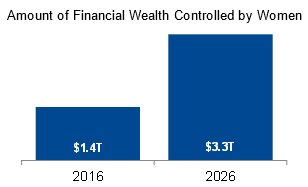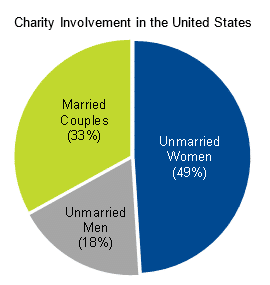EPISODE / 6
Unlocking the Potential in Women’s Philanthropy
By 2026, women will control 48% of wealth in Canada. If not already, charities should be focusing on women as a key donor group. In this episode of The Ask, we speak to Jo-Anne Ryan, Vice President Philanthropy TD Wealth and Sharon Avery, CEO Toronto Foundation about what to do to tap into the power and potential of women donors.
Fact & Trend Sheet – Women’s Philanthropy
Women’s Wealth
Canadian women will acquire an estimated $900 billion over the next 10 years.
In 2016, Canadian women controlled 35% of financial wealth. By 2026, they are expected to control close to 48%.
Women’s Giving
Women demonstrate more support for corporate involvement in causes associated with poverty, mental health, and abuse issues
Affluent Canadian women donate a higher proportion of their investable assets to charity than men.
In 1984, women contributed 36% of all donations. In 2014, this number was 41%.
In the United States, unmarried women make up 49% of all charitable bequests. Married couples make up 33%, and unmarried men make up 18%.
Preferred causes among women in general are poverty, health, children, women’s rights, and education.
Among married women, they are children and the elderly.
Among single women, they are animal welfare and the arts.
Women tend to value long-term and open relationships with charities they support.
Female retirees tend to agree that success in their retirement is defined by giving vs attaining great wealth. This is confirmed by higher giving and volunteering rates among retired women vs men.
The majority of female philanthropists do extensive research before committing to provide charitable funding.
Women are 15% more likely than men to have had a conversation with a financial advisor before donating.
All of these points indicate that women are a key demographic that fundraisers should be including in their strategies. However, 40% of women working at major charities say there is less of an emphasis on soliciting gifts from women, and only 33% of women working at major charities believe that wealthy female donors are given the same respect as their male counterparts.
Even though women tend to be left out of institutional philanthropy, this doesn’t stop them from getting involved. Giving circles are becoming increasingly popular, especially among women. In a study in the states on Giving Circles, Women made up more than half the group for 70% of the circles.
In the states, giving circles have engaged at least 150,000 donors, and have contributed $1.29 billion to philanthropy. The number of circles at the time of the report in 2017 has tripled from 2007.
Useful Links
Time, Treasure, Talent: Canadian Women and Philanthropy (TD)
Time, Treasure, Talent: Canadian Women and Philanthropy – Addendum 1 (TD)
Time, Treasure, Talent: Canadian Women and Philanthropy – Addendum 2 (TD) (link not live yet, will send when it is)
Unicef’s 25th Team Giving Circle (UNICEF)
Tiffany Giving Circle (Red Cross)
Women’s Philanthropy (Federation CJA)
Sources
Time, Treasure, Talent: Canadian Women and Philanthropy (TD, 2014)
Meet the High-Net Worth Female Philanthropist (IUPUI Women’s Philanthropy Institute, 2018)
The Landscape of Giving Circles: Collective Giving Groups in the US (IUPUI Women’s Philanthropy Institute, 2017)



